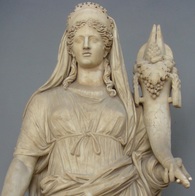Awards, Scholarly

- The Frank W. Beare Award, for an “outstanding book in the areas of Christian Origins, Post-Biblical Judaism and/or Graeco-Roman Religions” 2017: Divine Wrath and Salvation in Matthew: The Narrative World of the First Gospel (Fortress, 2016).
Excerpts from the evaluations:
A long-awaited book by someone well-positioned to write it. The author brings to this groundbreaking study of Matthew’s Gospel a combination of ethical passion, interpretive insight and sensitivity to Christian-Jewish relations, enriched by his previous work on the synagogue in the Second Temple period and on early Jewish Christ-groups (which he terms “apostolic Judaism”). The result is a fresh reading of Matthew—and, in particular, of a Matthean theme (“divine wrath”) that has often been read as particularly anti-Jewish.
The book offers an original, insightful (and voluminously researched) reassessment of longstanding problems in the interpretation of Matthew’s gospel: inter alia, 1) how to explain Jesus’ insistence that the Torah is of enduring validity (Matt 5:17–19); 2) how to account for Jesus’ treatment of various leadership groups (e.g. scribes and Pharisees) in relation to the “crowds” and/or Israel as a whole; 3) how to reconcile or correlate the limitation of Jesus’ own mission to ethnic Israel with the universal scope of the mission he entrusts to his post-resurrection disciples; and, 4) how to explain the notorious assertion in 27:25 whereby the crowds call down upon themselves responsibility for the shedding of Jesus’ blood. His solution is to situate Matthew’s gospel in the context of first century covenantal nomism, focussing in particular on criteria by which Israel and the Gentile nations, respectively, experience divine punishment and reward both in this life and eschatologically. Among his more remarkable findings are the proposal that for the Matthean community, Torah obedience remains normative, providing the basis for divine judgment, such that Gentile disciples of Jesus must find salvation via proselyte conversion to the Abrahamic covenant, and, in particular, that “contrary to later Christian beliefs, Jesus is the solution to the destruction of the temple, not its cause” (332).
- The Westrupska Award, for The Origins of the Synagogue, The Royal Academy of Humanities, Lund, Sweden, 2004.
- The Biörnstjärnska Award for The Origins of the Synagogue, The Royal Academy of Letters, History and Antiquities, received from the King of Sweden at a ceremony in the Royal Palace, Stockholm, Sweden, 2003.
- The Lars Johan Wallmark Award for scholarly excellence, The Faculty of Theology and Religious Studies at Lund University, Sweden, 2002.
- The Esaias Tegnér Award, for excellence in exegetical research, Lund University, Sweden, 2002.
Other Scholarly Honours
- Selected as Author in Focus, November 2011, by Brill Academic Publishers (Leiden, The Netherlands)
Awards, Pedagogical
- Nominated for the President’s Award for Excellence in Graduate Supervision, McMaster University, 2013.
- Nominated for the President’s Award for Excellence in Teaching, McMaster University, 2006.
